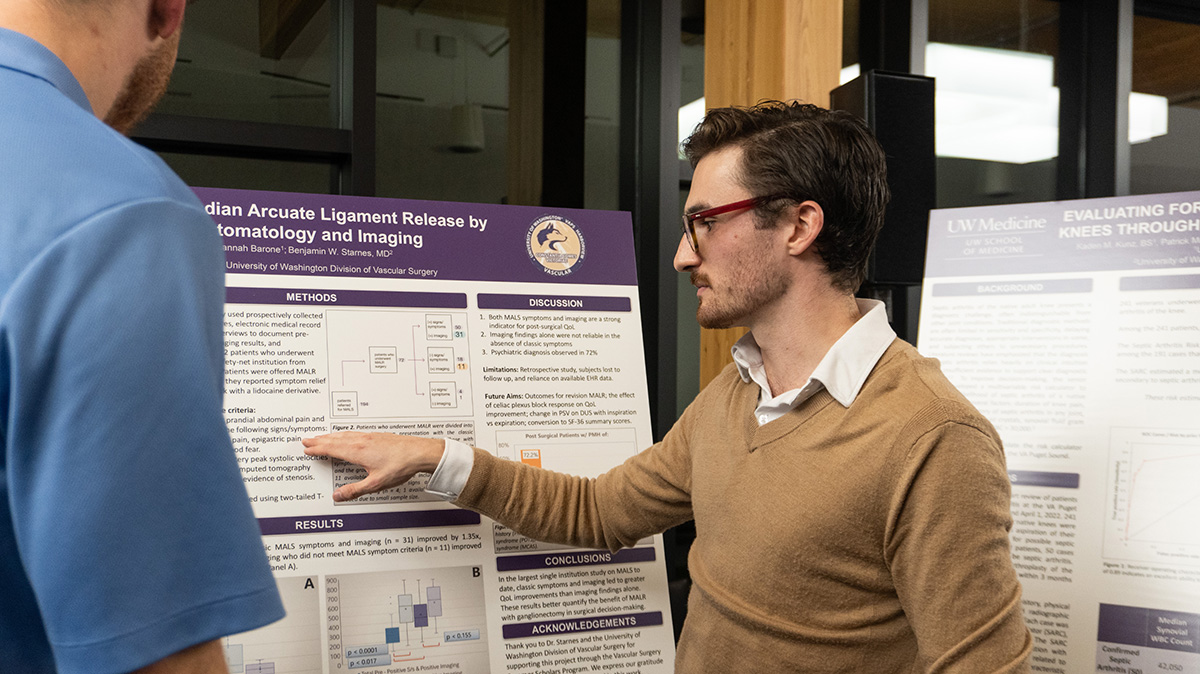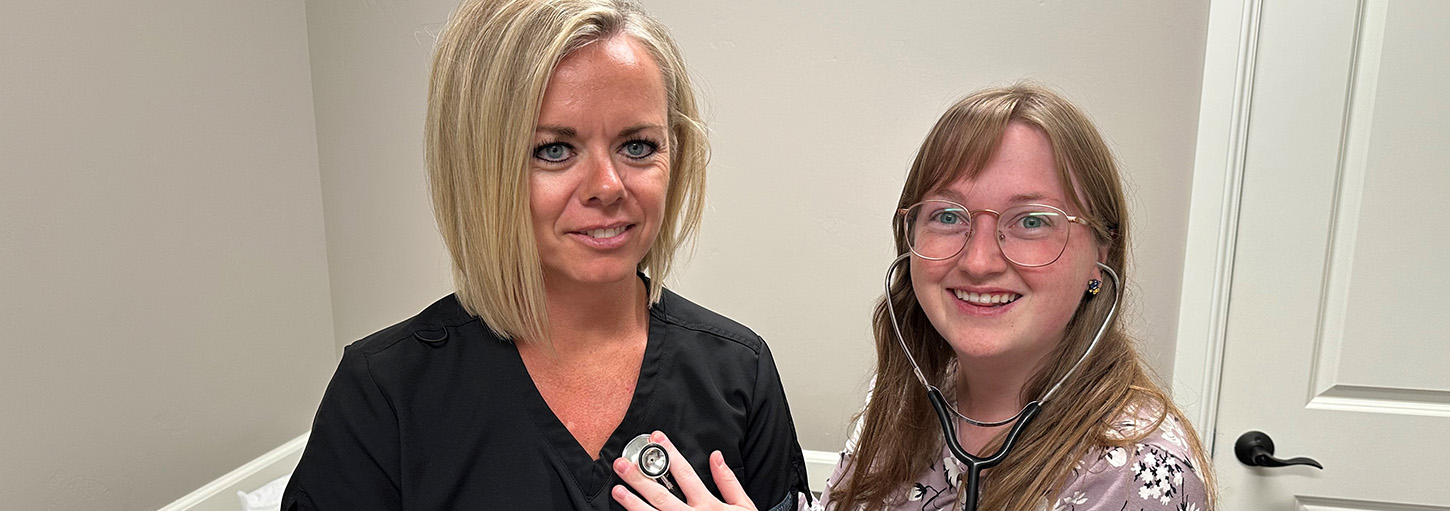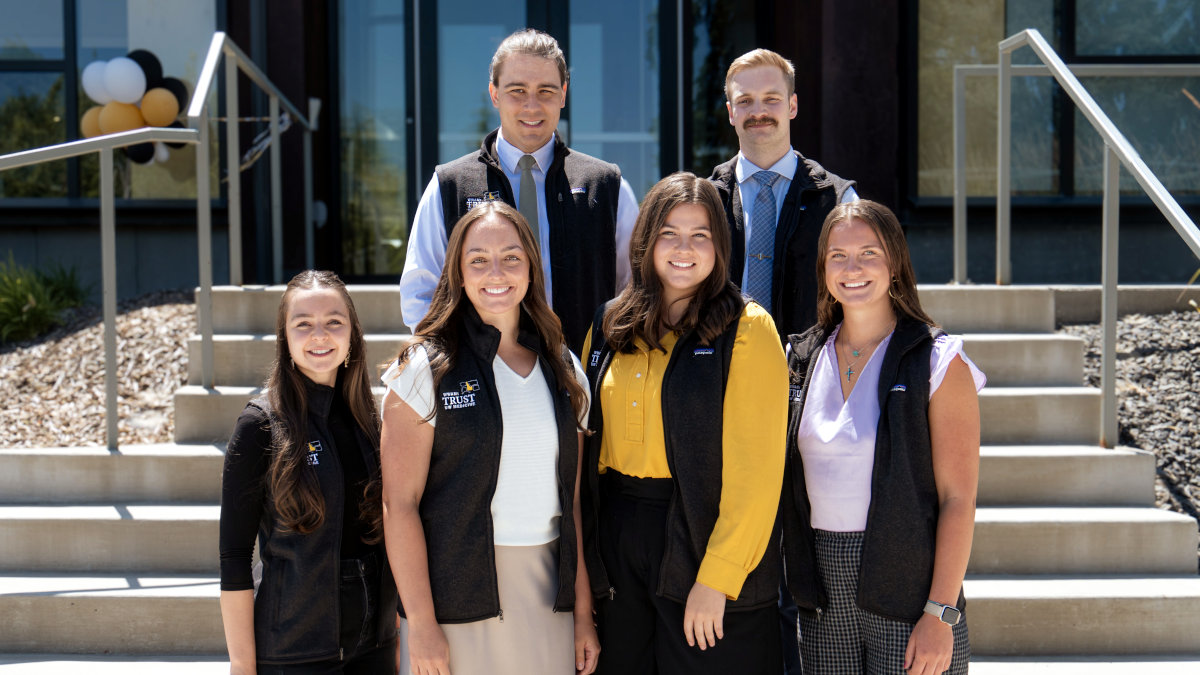Idaho WWAMI (Washington, Wyoming, Alaska, Montana and Idaho)
Bringing world-class medical education to Idaho
Idaho WWAMI is a partnership between University of Idaho and the nationally ranked University of Washington School of Medicine. Since 1972, this collaboration has provided immersive medical education programs and training opportunities to Idaho’s future physicians, preparing them to meet the health care needs of communities across the state and beyond. Explore the history and future of WWAMI.
Your path to WWAMI
As an Idaho WWAMI student, you’ll begin your health care education journey at University of Idaho, where you’re considered an Idaho resident. Your coursework starts with an 18-month intensive curriculum that covers the essential building blocks of medicine — the Foundations Phase.
Once completed, you’ll transition to the Clinical Phase, which includes hands-on clinical opportunities tailored to your interests. You can complete clinical rotations in urban and rural settings across Idaho and throughout the WWAMI region, ensuring you have experience working with all populations.
Why choose Idaho WWAMI?
With access to WWAMI’s medical education programs as a U of I student, you’ll gain the knowledge, practical experience and network to set yourself apart in the medical field. Here’s how:
- Top-ranked partnership: Benefit from a curriculum co-developed by U of I and the University of Washington School of Medicine, one of the leading medical schools in the nation.
- Community-centered learning: Participate in real-world training in a variety of health care settings, reflecting Idaho's diverse medical needs.
- Specialized opportunities: Take location-based elective courses like wilderness medicine.
- Commitment to Idaho: Make a difference here. With 51% of WWAMI graduates practicing in Idaho — compared to the national average of 39% — WWAMI significantly contributes to the state’s health care workforce.
- Our people: Learn from experienced faculty and dedicated staff guiding the next generation of physicians.
Unparalleled student opportunities
Idaho WWAMI offers a well-rounded medical education that supports you inside and outside of the classroom. Discover what’s waiting for you.
The WWAMI curriculum is unified across all sites, ensuring a consistent, high-quality medical education program. Each of WWAMI’s six locations offers unique electives to enhance the learning experience, yet all students learn the same core curriculum at the same time. Explore WWAMI’s academics.
From clinical studies to public health initiatives, Idaho WWAMI students engage in research that addresses real-world medical challenges. Discover research opportunities.
Our pre-med mentoring program connects aspiring medical students with experienced faculty who can provide personalized guidance on the path to medical school. Get involved in pre-med mentoring.
Idaho WWAMI offers a range of scholarships and financial support to help students achieve their health care education goals. View WWAMI scholarships.
Our goals for Idaho
The WWAMI medical program has five primary goals for the state of Idaho. We’re committed to:
- Providing publicly supported medical education.
- Increasing the number of primary care physicians.
- Providing community-based medical education.
- Expanding graduate medical education (residency training) and continuing medical education.
- Providing all of this in a cost-effective manner.
WWAMI students in action
Every WWAMI student has an impactful story to tell. See how they’re applying their skills in actual clinics and preparing for their future in health care.
Become the physician Idaho needs
Together, University of Idaho and Idaho WWAMI’s medical program give you the medical education, real-world training and health care community to launch a rewarding career in medicine. Get started today!













